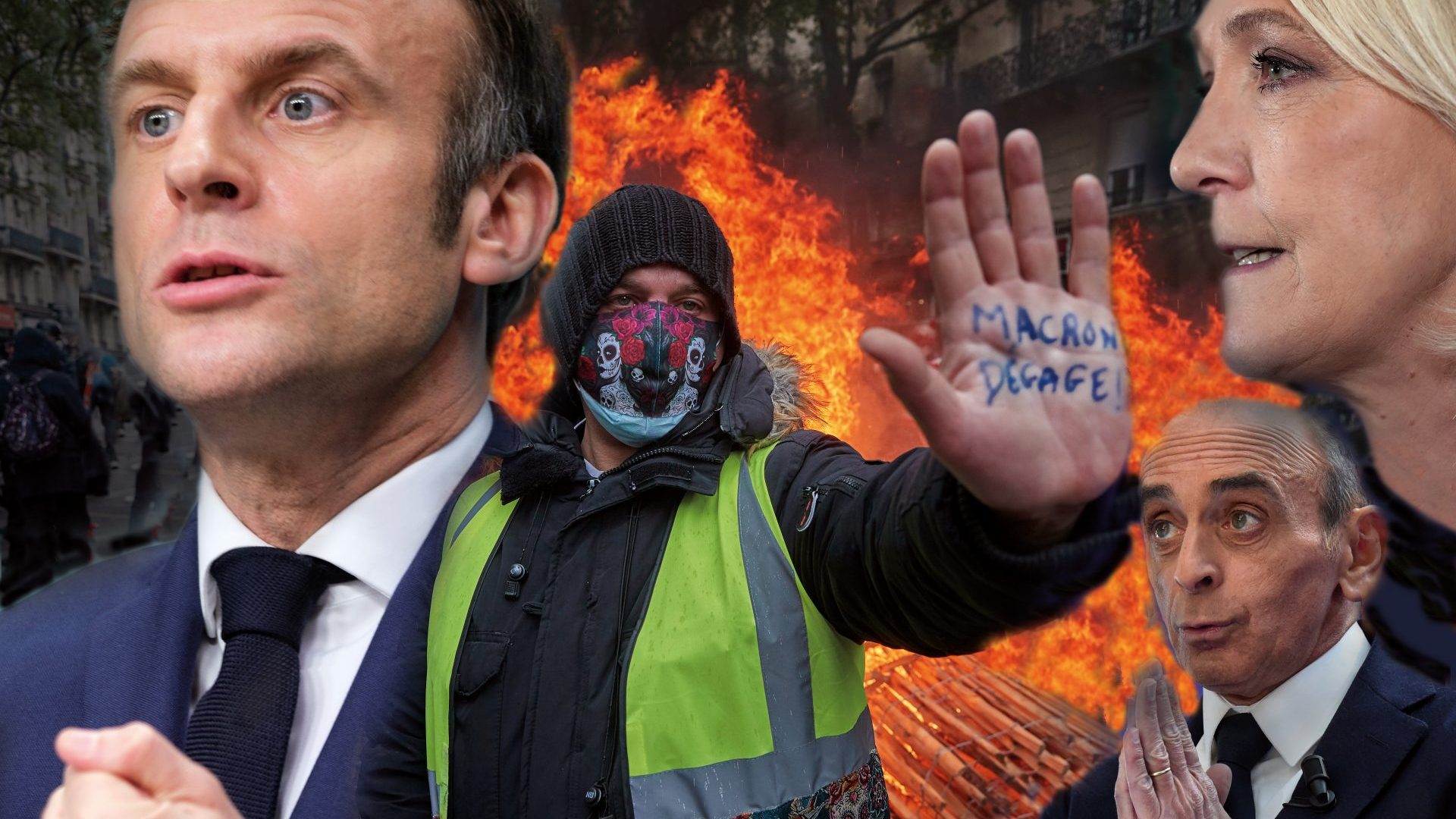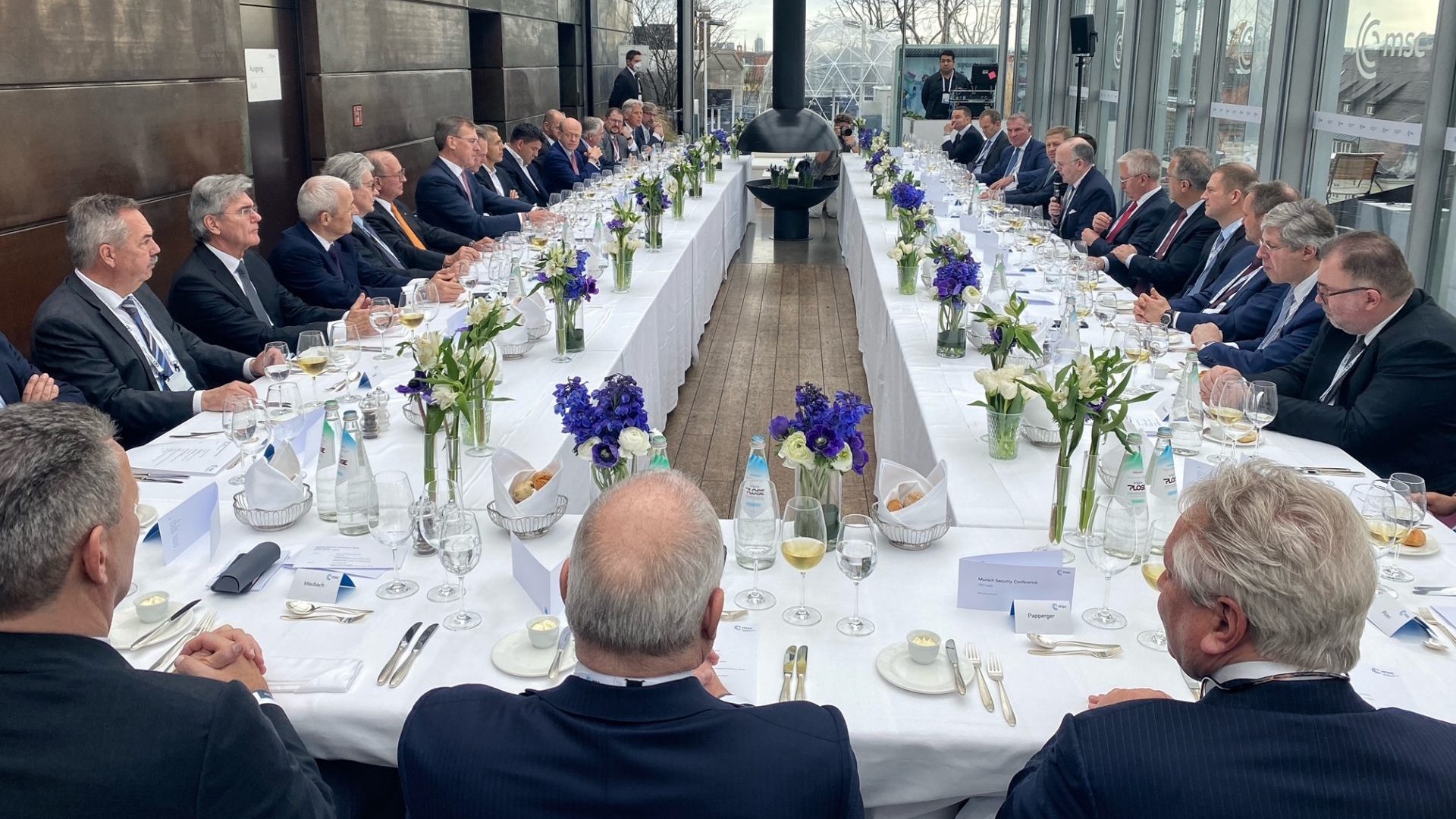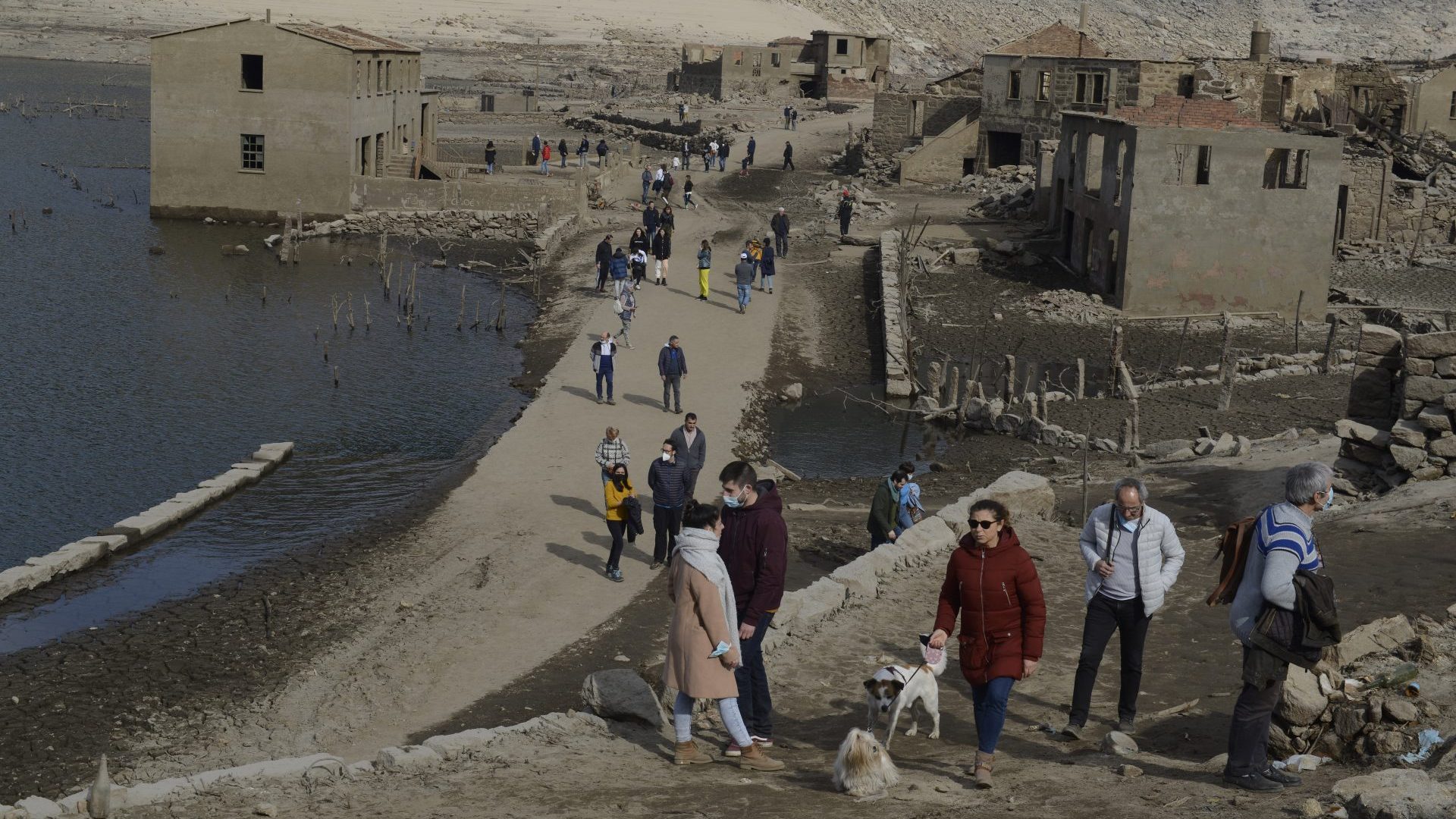“The old world is dying and, in this chiaroscuro (light and dark), the new world struggles to be born; now is the time for monsters.” So Antonio Gramsci is supposed to have said. Revolutionaries and reactionaries have borrowed the quote to signal times of trouble. It captures the France of 2022 on the eve of elections, a country riven with division.
Five years ago, it looked so different. When Emmanuel Macron emerged from nowhere to become president, the 39-year-old was signalling a new generation, a new way. He had never been elected; he had not even been a city councillor. He created a party of “helpers”, young and dedicated hipsters. It looked as if populism had lost the war. It turns out it was just the first battle.
In Macron’s rallies, European flags mingled with French ones. The campaign motto “right and left” convinced the voters. At least some of them, 24% in the first round. That goes to the heart of the problem. It was enough to get him into the run-off with the far-right’s Marine Le Pen, and to win, but it also helps to explain how Macron has been accused throughout his mandate of being an illegitimate president.
As France prepares to go to the polls on April 10 and 24, this crisis of discontent is reaching a peak. Voters’ concerns range from the cost of living to identity, from immigration to the decay of public health, from France’s place in the world to the climate challenge.
“Yellow is ugly, it doesn’t go with anything, but it can save your life”. This is how in 2008 Karl Lagerfeld, the fashion icon, extolled the merits of the yellow vest for road safety. A decade later, the Yellow Vests changed France and the way it looks at itself. The movement surged out of small towns, a faceless insurrection, without rules, but an insurrection that has allowed many to affirm that they exist and which, in a way, they say may even have saved lives.
The legacy of this revolt can be felt throughout this election. Pundits and politicians alike have been forced to take into account large groups of citizens, dissatisfied with local or national governments, who had previously gone unheard. In Macron’s circle, what began in autumn 2018 is a black swan event, an extremely rare occurrence with considerable consequences.
The Yellow Vests punctuated the life of the French people for almost a year, every Saturday, on the roundabouts and in the streets of Paris – for the sake of TV pictures. The images stick in the memory: these thousands of men and women (your next-door neighbour, the supermarket cashier, the teacher at your children’s school, the unemployed) who ransack the Champs Elysées, the “most beautiful avenue in the world”, and congregate at the Arc de Triomphe. Their weapons: their sheer size, their yellow vests and social networks.
This was the first such rebellion organised on Facebook in France. Political parties and trade unions were not involved. Mainstream institutions had no means of channelling the anger. Some tried to clamber on board but were rebuffed. The Yellow Vests refused to have leaders or even representatives. The movement fed off itself.
Did they win? In part, they did. The government withdrew the measure that had triggered the revolt, a planned increase in fuel prices. The protesters argued that violence was legitimate, but it had its costs. Police were often overwhelmed and when they called for reinforcements, some of the officers were not trained to use rubber bullets. Press reports said that in one year alone, around 30 demonstrators lost an eye. Others had their hands torn off.
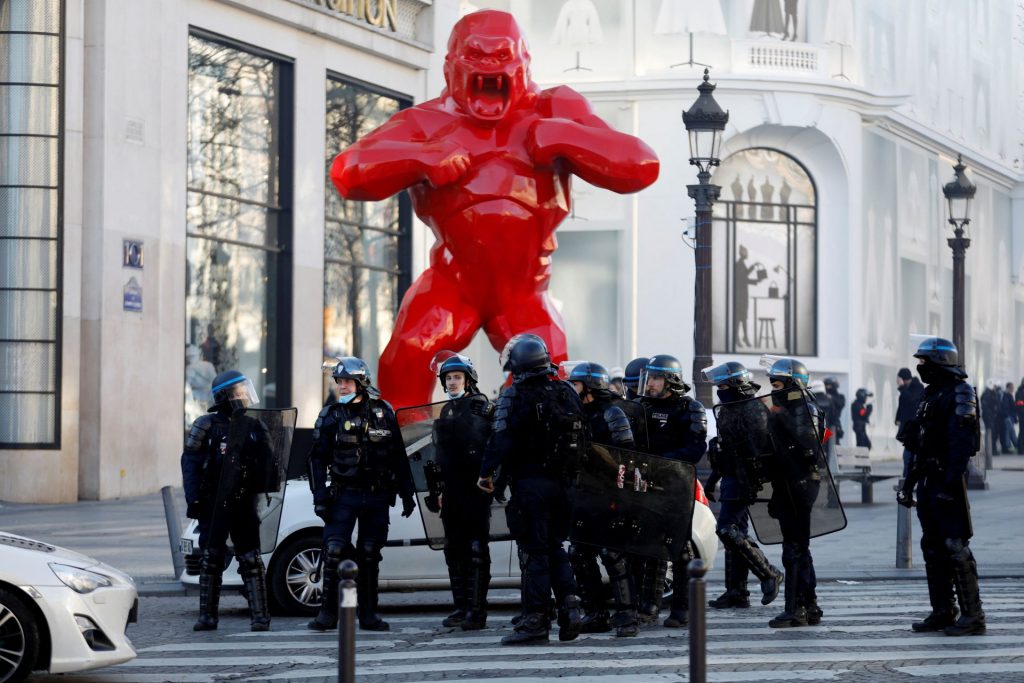
The French, of course, are no strangers to revolution. They look at established authority with suspicion. Covid-19 has reawakened these instincts. Anti-vaxxers take to the streets each week, often inspired by conspiracies conjured on the far right. Mistrust becomes the most-shared common value, mistrust of politicians, elected officials, teachers, police officers, judges, journalists…
The protesters have now turned the tables and are targeting people they regard as the elite, as the pillars of the Republic, a disconnected caste. From January to November 2021, up to 1,200 politicians at local, regional and national level were targeted. Some received emails calling for their decapitation. Others suffered physical abuse, or arson on their home or car. A number of local party headquarters were vandalised. According to one poll, 60% of voters said they understood the violence even if they did not condone it.
It is perhaps hard to apprehend the world when questions of housing, food, work or health monopolise all your energy. According to the statistical agency Insee, last year 14.5% of the population received less than 60% of average income, the official poverty threshold. Put another way, there are six to nine million poor people in France, out of a population of 67 million. Each year, the number of those forced to rely on food banks and charities increases. Students and single mothers constitute a significant proportion of the new poor.
Social media bubbles play to the concerns of many – and not just the vulnerable. Polemicists blame immigrants, globalised elites, Muslims or Jews for France’s woes. Perhaps the country’s best-known author, Michel Houellebecq, is representative of this state of mind. He describes a disenchanted France, gloomy and hopeless. His 2015 dystopian fable Submission imagined the coming to power in Paris of an Islamist party.
His latest book, which came out in bookstores just a few days ago, is called Anéantir (Eradicate). Focusing on a discordant family reunited around their sick father, the author portrays an atomized world, the decline of family love and the disappearance of traditional landmarks.
Populism has now developed deep roots; the populism embodied by Marine Le Pen, in her third run as presidential candidate and the heiress of the National Front, now rebranded as the National Rally. The populism embodied by Éric Zemmour, TV host turned politician, defender of an “eternal France”. Peace and stability, he tells his supporters, are at stake: foreign and religious forces are waging war on the rural and quiet French way of life. The tone is apocalyptic, the discourse dark and almost millenarian. Then there is the leftwing populism of Jean-Luc Mélenchon and La France insoumise, “indomitable France”, beloved of the young.
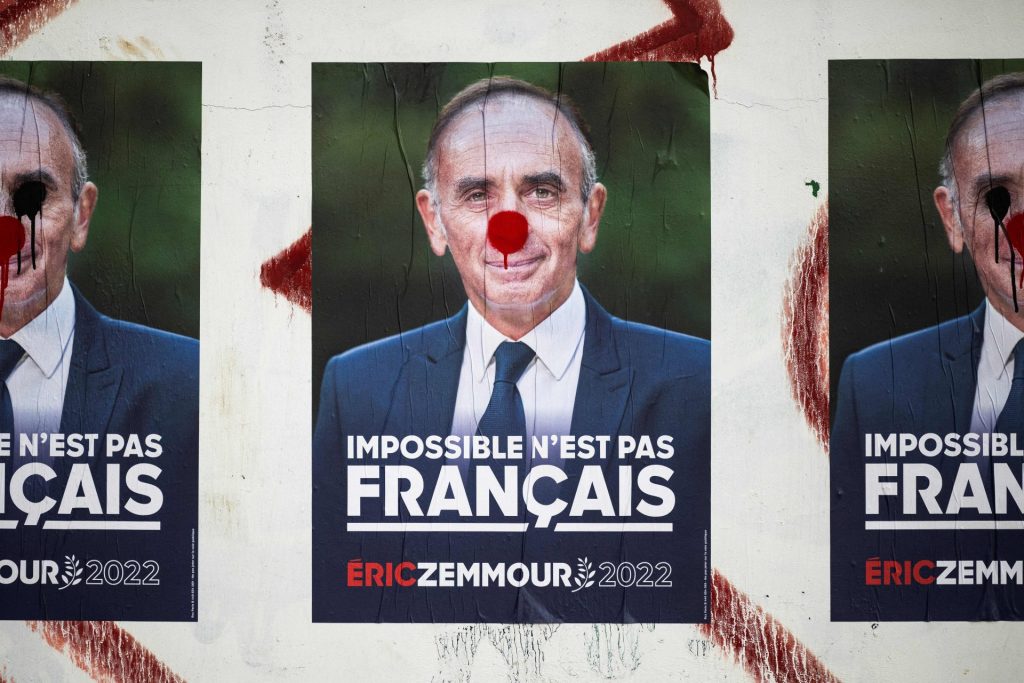
Between them, these three candidates are expected to garner 40% of the votes in the first round. How did it get to this?
The economics tell only part of the story. National debt is at 120% of GDP, a deferred tax for future generations. Yet a number of statistics show that things are actually getting better. Unemployment is at its lowest for 15 years; start-ups are at a record high; there were far fewer bankruptcies than feared during the pandemic.
Look elsewhere, however, beyond the figures. One word sums up the general state of mind. A feeling of downgrading. The term “French decline” has insinuated itself everywhere. The Sanofi group, a pharmaceutical company and once source of national pride, was unable to find and develop a vaccine. France’s healthcare system, one of the best in the world, is collapsing before people’s eyes. Profit targets led to the closure of thousands of hospital beds and a shortage of staff; a policy cruelly exposed by the Covid crisis. The failure to procure vaccines – and the reliance on the European Union’s belated and collective purchase – alongside a series of half-truths or lies uttered by ministers further undermined the credibility of public figures. The massive abstention in local elections in 2020 and 2021 should have acted as a wake-up call.
On the international front, the “contract of the century” to supply Australian submarines was sabotaged by the Americans, Australians and Brits. A growing dependency on products imported from China, not least masks, has contributed to a loss of confidence. Is France still a great power? This refrain is seized upon by the right. France is no longer what it was. This, after all, was the country that enabled world-beating high-speed trains, the TGV, the development of nuclear power, the birth of large industrial companies.
Do a vox-pop on the streets and you will hear the same thing, again and again. Political parties are dominated by special interests, people say. Elected officials succumb to temptations of corruption and the impulses of their ambition.
Voters are only consulted every five years. And even then, do their votes really mean anything? This crisis of representative democracy undermines the contract between the rulers and the country. To return power to the people, the populists say, we must turn to referendums and to other forms of action.
When the Yellow Vests demanded a say, Macron promised to act. He established citizens’ conventions, particularly on the climate. They met for many months, put forward 150 proposals, and then… the more radical measures were all rejected.
Repairing French democracy and the institutions of this Republic developed in 1958 will take more than the work of a single presidential term. As everywhere in Europe, the notion of collective citizenship is giving way to a form of separatism. In France, more than elsewhere on the continent, the divide between the vaccinated and unvaccinated is an example of this. The former accuse the latter of endangering the lives of others; the latter complain of being treated as a sub-group.
Each group is like an island. The French Archipelago, a book published in 2019 by political analyst Jérôme Fourquet, talks of the metamorphosis of France into sociological and political islands that have little in common. “In an archipelago society, the outcome of electoral competitions becomes increasingly uncertain,” he states. Shortly after, Fourquet published France Before Our Eyes. It details a changing country where Amazon warehouses colonise agricultural land. The arrival of tacos, the invasion of McDonald’s (1,500 today compared with 34 in 1986) are shattering the image of a France of cafes and brasseries.
The mainstream parties struggle to respond to this maelstrom of change and discontent. Since the 2017 election, the political spectrum has been shattered.
Last time around, the mainstream Republican right failed to qualify for the second round. The corruption cases involving the then-candidate, François Fillon, and the former prime minister Nicolas Sarkozy prompted that part of the electorate to opt for Macron. Since then, a party without a discernible leader has been torn between those who want to focus on traditional socioeconomics and those who want to focus on identity issues.
The socialists have gone only backwards since their disastrous result of 2017. Amid endless in-fighting, one faction of the party has embraced “woke” social ideology imported from American campuses, while another insists on fighting on more traditional grounds. So deep is the divide that some believe the groupings are irreconcilable and that the party is fast losing its relevance.
These two groups, the Republicans and the Socialists, which have dominated political life in France for more than 50 years, still hold many regions and cities; but at national level their decline is precipitous. Cue Macron: even though more than 10 candidates have declared for the presidential elections, he is holding most of the mainstream ground. Meanwhile, much of France is going to the extremes.
France is a very political country. Heated political debate has traditionally dominated the family table. That hasn’t changed. What has is that many citizens now wonder why they should be bothered to vote. The splintering of convictions and party affiliations is leading the country towards upheaval.
Whatever happens in April, Zemmour and Le Pen have already imposed themselves on the body politic, on immigration and “taking back control”. Economic and cultural insecurity meet a wide echo in a country that has shifted its centre of gravity ever further to the right.
Macron knows how to do optimism. He promised much of it in 2017, proposing a transformation of France and of the European ideal. Faced with many battles in just five years, he has reinvented himself several times already, and is in pole position to rule for another five. So far, however, he has failed to fulfil his main promise: to reconcile France with itself. The country, as survey after survey shows, is tired, angry and anxious. His longer-term challenge is Herculean.
Valérie Nataf is a French broadcaster and writer

